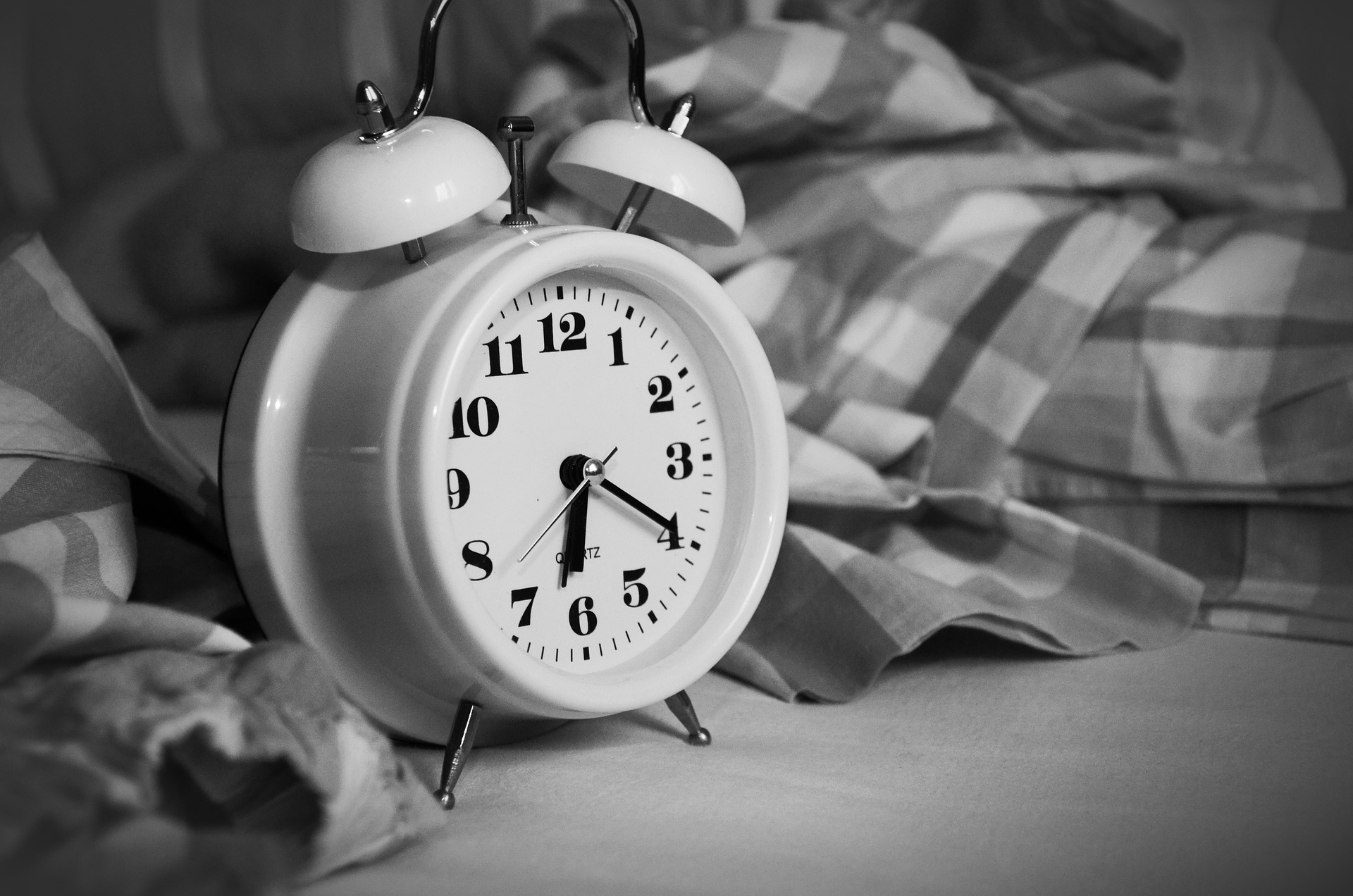
The Importance of Healthy Sleep Patterns for Weight Loss and Overall Health
Getting enough sleep is like hitting the reset button for your body and mind. Not only does it keep you feeling refreshed and ready to tackle the day, but it also plays a crucial role in weight loss and overall health. Let's dive into why developing healthy sleeping habits can be a game-changer for your wellness journey.

Why Sleep is Essential for Weight Loss
You might not think sleep has much to do with your weight, but it’s a bigger player than you’d expect. Lack of sleep can mess with your metabolism, making it tougher to burn calories. Plus, it throws off your hormones—particularly ghrelin and leptin, which control hunger and satiety. When you're sleep-deprived, your body produces more ghrelin (the hunger hormone) and less leptin (the hormone that tells you you're full), leading to increased appetite and cravings. Additionally, insufficient sleep can lead to higher levels of cortisol, the stress hormone, which can also contribute to weight gain by encouraging your body to store fat, especially around your midsection.
Setting a Bedtime Alarm
Ever get so caught up in a show or a project that you lose track of time? Setting a bedtime alarm can be a lifesaver. It’s a gentle nudge, reminding you that it’s time to wind down. Personally, having a bedtime alarm has helped me maintain a consistent sleep routine. It signals the end of the day, allowing me to prepare mentally and physically for sleep. This routine has become a crucial part of my day, helping me disconnect from the chaos and focus on relaxation.
Eating Dinner Early
Eating dinner at least 2–3 hours before bedtime gives your body enough time to digest the food, making it easier to fall asleep. Heavy meals right before bed can leave you feeling uncomfortable and restless. When I get a bit hungry late at night, I drink water or opt for light snacks like nuts, berries, or half an apple. This approach keeps me from feeling too full and helps avoid any sleep disruptions. Moreover, consuming lighter meals in the evening ensures that your digestive system isn't working overtime while you’re trying to sleep, which can prevent indigestion and acid reflux.
Pre-Bedtime Workouts and Yoga
A bit of physical activity before bed can do wonders for your sleep. Yoga, meditation, or light stretches help reduce stress, ease muscle pain, and prepare your body for rest. I love doing a quick yoga session or some gentle stretching before bed—it’s like giving my body the signal that it’s time to relax and let go of the day's tension. Engaging in these activities can also help lower your heart rate and clear your mind, making it easier to drift off to sleep. Additionally, incorporating breathing exercises can significantly enhance the relaxation effect, making you more receptive to sleep.
Avoiding Caffeine Before Bedtime
Caffeine is great for a midday boost, but it’s not your friend before bedtime. It can keep you awake and alert when all you want to do is sleep. Avoiding caffeine at least 5–6 hours before bed, including green tea, can help ensure a restful night. Instead, I opt for a calming chamomile tea, which helps me relax and prepare for sleep. Chamomile has natural sedative properties that can ease anxiety and promote better sleep. Other caffeine-free alternatives include herbal teas like peppermint or valerian root, both of which can help you unwind before bed.
Avoiding Late Naps
Naps are great, but timing is everything. It can be difficult to fall asleep at night if you nap too soon before bed. If you’re really tired, try to push through until your regular bedtime. During the day, keep naps to around 30 minutes to avoid interfering with your nighttime sleep. Longer naps can leave you feeling groggy and disoriented, disrupting your sleep cycle and making it harder to get quality sleep at night. If you feel the need to nap, try to do so in the early afternoon to minimize any impact on your nighttime sleep.
Creating a Comfortable Sleep Environment
Your bedroom should be a sleeping sanctuary. Block out light and minimize noise to create a peaceful environment. I make sure to have blackout curtains and use earplugs if needed. Keeping the room cool and having a comfortable mattress and pillows also contribute to better sleep quality. Additionally, consider using a white noise machine to drown out any disruptive sounds and an essential oil diffuser with calming scents like lavender to create a soothing atmosphere. The goal is to make your bedroom a place that invites relaxation.
Developing a Wholesome Sleep Ritual
Having a nighttime ritual helps signal to your body that it’s time to sleep. I like to read and pray for about 30 minutes before my bedtime alarm goes off. You could also meditate with relaxing tunes or affirmations. The key is to find activities that help you unwind and prepare your mind for sleep. Consistency is crucial here; performing the same activities in the same order every night trains your brain to recognize when it’s time to start winding down. This can significantly improve the ease with which you fall asleep and the quality of your sleep.
Reducing Screen Time Before Bed
We’ve all heard it—blue light from phones and devices can mess with your sleep. Try to avoid screens at least an hour before bed. Instead of scrolling through social media, I’ve started reading physical books or doing some journaling. It’s a nice break from screens and helps me wind down. Blue light suppresses the production of melatonin, the hormone responsible for regulating sleep. By reducing your exposure to screens, you can help your body produce more melatonin, making it easier to fall asleep. If you must use devices, consider using blue light filters or wearing blue light-blocking glasses in the evening.
Consistency in Sleep and Wake-Up Times
Maintaining a regular sleep and wake-up schedule supports the regulation of your body's internal clock. When you stick to a consistent schedule, it becomes easier to fall asleep and wake up naturally. Even on weekends, try to keep your sleep times within an hour of your weekday schedule. This consistency reinforces your circadian rhythm, making it easier for your body to anticipate sleep and wake times. Over time, this can lead to improved sleep quality and overall better health.
Avoiding Worry and Relaxing the Mind
Stress and worry can keep you tossing and turning all night. Find techniques that help you relax and let go of anxiety. Deep breathing exercises, progressive muscle relaxation, or writing down your thoughts can help clear your mind. Remember, worrying won’t solve anything—resting your body and mind is more productive. Cognitive-behavioral techniques, such as reframing negative thoughts and focusing on positive aspects of your day, can also help reduce anxiety and promote a sense of calm before bed.
The Role of Diet in Sleep Quality
What you eat can impact your sleep. Foods rich in magnesium, like leafy greens, nuts, and seeds, can promote better sleep. On the flip side, avoid heavy, spicy, or acidic foods before bed, as they can cause discomfort and disrupt sleep. Additionally, tryptophan-rich foods like turkey, bananas, and milk can help increase the production of serotonin and melatonin, promoting relaxation and sleep. Be mindful of your overall diet and how it affects your energy levels throughout the day, as this can also influence your sleep patterns.
The Impact of Physical Health on Sleep
Regular exercise can significantly improve sleep quality. Strive to avoid intense workouts right before bed, but aim to get at least 30 minutes of moderate exercise most days. If physical discomfort is an issue, consider seeing a healthcare professional to address any underlying problems. Physical activity helps reduce stress and anxiety, improve mood, and regulate the sleep-wake cycle. However, exercising too close to bedtime can have the opposite effect, so it's best to complete your workouts at least a few hours before you plan to sleep.

Conclusion
Getting enough sleep is crucial for your overall health and weight-loss efforts. By developing healthy sleeping habits—like setting a bedtime alarm, eating dinner early, and creating a comfortable sleep environment—you can boost your metabolism, regulate your appetite, and improve your overall well-being. Remember, a good night's sleep is not a luxury but a necessity for a healthy lifestyle. Prioritizing sleep will not only help you lose weight more effectively but also enhance your daily performance and overall quality of life.
FAQs
How much sleep do I need for weight loss?
Most adults need 7-9 hours of sleep per night for optimal health and weight loss. Quality sleep supports metabolic function and hormone regulation, which are crucial for effective weight management.
Can improving sleep alone help me lose weight?
While sleep is a crucial factor, it should be combined with a healthy diet and regular exercise for the best weight-loss results. Adequate sleep enhances your ability to make healthier food choices and maintain energy levels for physical activity.
What are some quick ways to improve sleep quality?
Establish a consistent sleep schedule, create a comfortable sleep environment, and avoid caffeine and screens before bed. Incorporating relaxation techniques, such as deep breathing or meditation, can also help improve sleep quality.
How does stress affect sleep and weight loss?
Stress can disrupt sleep and lead to poor eating habits, both of which can hinder weight loss. Managing stress through relaxation techniques can improve sleep and support weight loss. Chronic stress increases cortisol levels, which can lead to weight gain, particularly around the abdomen.
Can one utilize sleep supplements to improve their quality of sleep?
Sleep aids should be used with caution and ideally under the guidance of a healthcare professional, as they can have side effects and may not address the underlying issues affecting sleep. Natural remedies and lifestyle changes are often more sustainable and effective for improving sleep quality.
